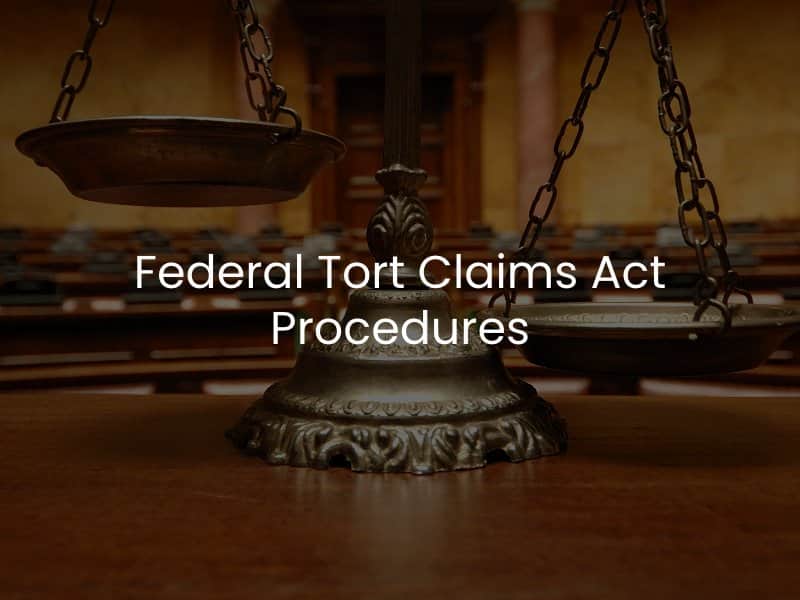Federal Tort Claims Act Procedures
The Federal Tort Claims Act (FTCA) is a federal law that allows individuals to sue the United States government for damages resulting from a wrongful act or omission of a federal employee if the employee is acting within the scope of duty required by their job. The FTCA provides a waiver of the sovereign immunity doctrine and allows individuals to file claims against the government for personal injuries and property damage.

An Administrative Claim
Before filing a lawsuit, a claimant must first file an administrative claim with the appropriate federal agency. The claim must be filed within two years of the date of the incident and must include a detailed description of the incident, the damages claimed, and any supporting documentation. Failing to file the claim with the appropriate federal agency within this two-year timeframe will likely result in the individual being unable to recover any compensation for their losses.
The initial claim should include detailed facts about the case, including how it happened, the injuries, and any other damages resulting from the incident.
Agency Review of the Claim
The federal agency has six months to review the claim and make a decision on whether to grant or deny the claim. If the agency denies the claim, it must provide a written explanation of its decision. The agency may agree to pay some or all of the damages you claimed, or they could reject the offer and refuse to pay anything at all.
Filing the Lawsuit
If the agency denies the claim or does not respond within six months, the claimant may file a lawsuit in federal district court. The lawsuit must be filed within six months of the agency’s denial or the expiration of the six-month review period. Again, it is crucial to make sure that the lawsuit is filed within the six-month time frame, or the individual will be unable to recover compensation.
Discovery and Trial Phase
The lawsuit proceeds like any other civil action, with the claimant and defendant conducting discovery and preparing for trial. If the case goes to trial, a federal district court judge will hear the case and make a decision. Individuals are not able to sue the federal government in state court. Additionally, only compensatory damages will be available, which include economic and non-economic damages. Punitive damages, a separate type of damages designed to punish a defendant, are not available through a FTCA case.
Working With an Attorney for an FTCA Case
Any person who needs to move forward with a FTCA case needs to speak with an attorney as soon as possible. These cases are incredibly complicated, and moving forward with a case successfully often requires comprehensive knowledge of federal procedures. An experienced personal injury attorney can get involved and conduct a complete investigation into the incident and handle all communication with other parties involved. A lawyer will handle all paperwork and claim to file, and they will fully prepare for every aspect of the case, beginning with the administrative claim all the way through to the trial phase.